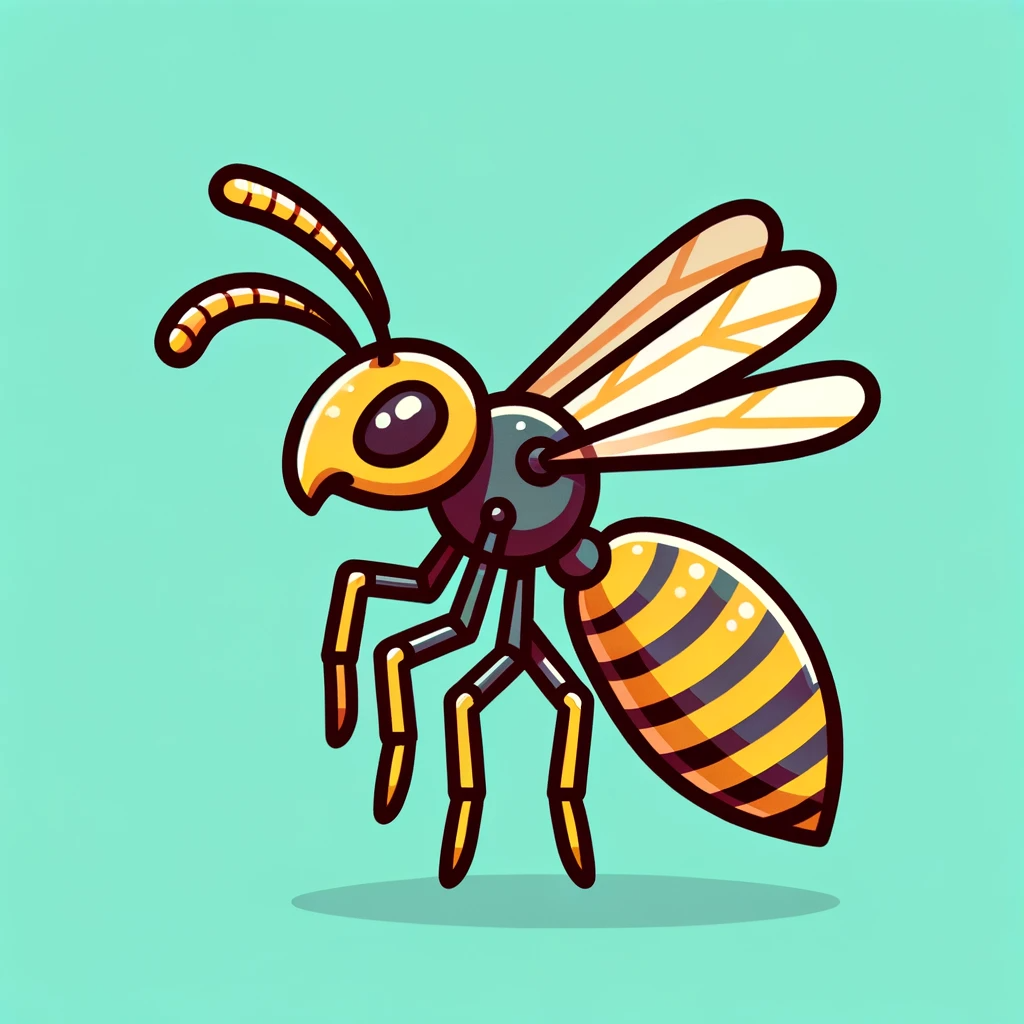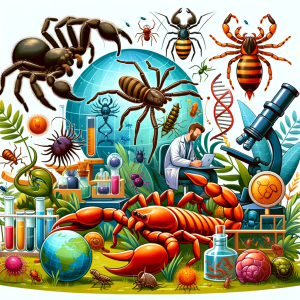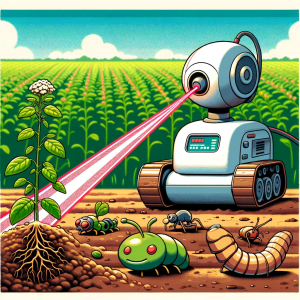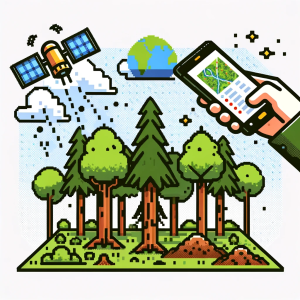
The Mysterious World of Parasitoid Wasps
This article is presented with a soundtrack. Click play, and read!
Have you ever wondered about the tiny creatures that play a huge role in maintaining our ecosystem’s balance? “The Biology and Ecology of Parasitoid Wasps of Predatory Arthropods,” a comprehensive article in Annual Reviews, sheds light on these often overlooked but vital inhabitants of our natural world. This blog aims to demystify the complex lives of parasitoid wasps and explain their importance in everyday terms.
The Fascinating World of Parasitoid Wasps
Parasitoid wasps, a topic that might seem daunting at first, are fascinating once you get to know them. These wasps are not your typical backyard insects. They have a unique lifestyle, laying their eggs inside or on other insects, often leading to the host’s demise. Think of them as nature’s own pest control agents.
Key Players in Nature’s Balance
Why should we care about these tiny creatures? Parasitoid wasps are critical in controlling the population of other insects, including pests that harm our crops. By keeping these pests in check, they indirectly support agriculture and our food.
A Closer Look at Their Lifecycle
The article dives deep into the biology of these wasps. For example, the wasp Dinocampus coccinellae, which targets ladybird beetles, lays its eggs inside the beetle. The larva grows inside, feeding on the beetle, and eventually emerges to continue its life cycle. This process, while seemingly brutal, is a natural and essential part of our ecosystem’s functioning.
Impact on Agriculture and Environment
Biological Control Agents
One of the key takeaways is the role of parasitoid wasps in biological control. By preying on pests, they reduce the need for chemical pesticides, leading to more sustainable farming practices. This benefits not only the environment but also the health of consumers.
Ecological Significance
The study of these wasps also offers insights into the broader ecological network. Understanding their behavior and life cycle helps scientists predict and manage the impact of human activities on ecosystems.
Everyday Implications
So, what does all this mean for you and me? Simply put, these wasps are unsung heroes in maintaining the health of our environment. They are part of a complex web that supports the food we eat, the health of our ecosystems, and, ultimately, our well-being.
Future Research and Conservation
The article highlights the need for further research and conservation efforts. Understanding and protecting these creatures becomes even more crucial as our environment faces increasing pressures from climate change and habitat loss.
Conclusion
Parasitoid wasps, though small, have a significant impact on our world. Their role in controlling pests and supporting sustainable agriculture is a testament to the intricate connections within nature. By understanding and appreciating these connections, we can make more informed decisions about our environment and future.
Science News to Your Inbox
Stay at the forefront of scientific discovery with “This Week in Science.” Perfect for educators and lifelong learners, our weekly newsletter brings you the latest and most significant scientific breakthroughs in an easy-to-digest format. It’s more than just updates; it’s an enriching resource for your personal and professional growth in the world of science. Subscribe for free today and join a community committed to understanding and applying science in innovative ways.



